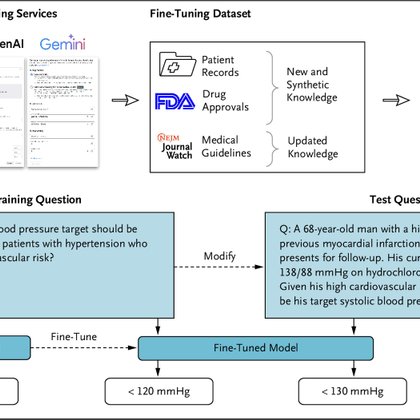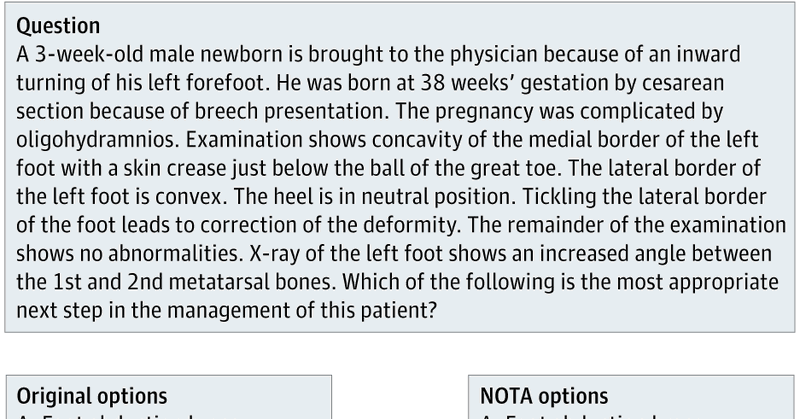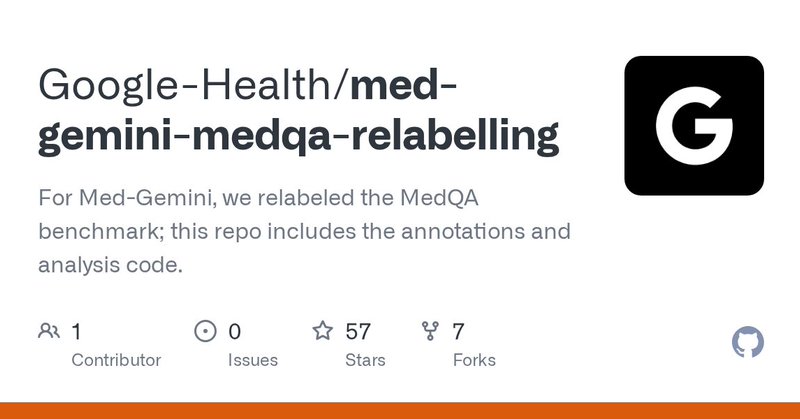
David Stutz
@davidstutz92
Followers
4K
Following
2K
Media
66
Statuses
650
Research scientist @DeepMind working on robust and safe AI, previously @maxplanckpress, views my own.
London
Joined January 2022
Want to learn how we enable physician oversight for AMIE, our research diagnostic AI? -- This article on the @GoogleResearch blog and the below threads are quick reads to get you up to speed:.
Today, Google Research & @GoogleDeepMind introduce g-AMIE, an extension of our diagnostic AI system based on #Gemini 2.0 Flash. It uses a guardrail that prohibits medical advice sharing & instead provides a summary for a physician to review. Learn more:
1
8
23
RT @GoogleForHealth: The global health workforce is projected to face a shortage of 11 million workers by 2030. We’re exploring how @Google….
research.google
0
19
0
RT @_khaledsaab: After two amazing years @GoogleDeepMind, I’m now joining @OpenAI to accelerate biomedical intelligence with @thekaransingh….
0
35
0
Interesting how well this generalized from early adversarial robustness work in vision where variants of scaled adversarial training with adversarial examples, OOD examples, corrupted examples, etc. usually worked pretty well.
Most “robustness” work (adversarial, shift, etc.) is just training on reweighted samples (augmented, model-generated, or mined). OOD generalization then comes from: .(1) inductive bias.(2) similarity to train data.(3) luck. The 3rd one is the most important of the three.
0
0
6
RT @aipulserx: Can an AI system perform medical history-taking while operating under strict guardrails that prevent it from giving individu….
0
2
0
An example is our work on AI for health where I can imagine small specialized models to perform summarisation and coordination tasks in a multi agent system, but diagnostic reasoning still benefits from large scale models -
research.google
1
1
3
Very nice position on the utility of small LMs by @nvidia. I agree that small models are more appealing to a large part of agentic tasks; still, agentic systems are often built around few, crucial, non-trivial tasks that will still benefit from large scale - 🧵.
This one paper might kill the LLM agent hype. NVIDIA just published a blueprint for agentic AI powered by Small Language Models. And it makes a scary amount of sense. Here’s the full breakdown:
2
1
6
Plus our work on physician oversight for AMIE, our research diagnostic AI:
research.google
August at Google DeepMind be like 🚢🚢🚢. - Genie 3.- Imagen 4 Fast.- Gemma 3 270M.- Veo 3 Fast.- Gemini Embedding.- Kaggle Game Arena.- Perch 2.- AI Studio <> GitHub integration. and much more!.
0
0
10
Some of our work shows that OSCE exams can be instructive in how to evaluate LLMs in more realistic settings:
research.google
1
0
2
This hints to a general problem of these comparisons: Humans are able to continually learn and update their practice to new guidelines and new evidence - something where LLMs apparently still struggle:
ai.nejm.org
Large language models (LLMs) used in health care need to integrate new and updated medical knowledge to produce relevant and accurate responses. For example, medical guidelines and drug information...
1
0
1
We first quantified this when relabeling the MedQA test set for Med-Gemini showing that many questions contain labeling errors based on today's standard of care:
github.com
For Med-Gemini, we relabeled the MedQA benchmark; this repo includes the annotations and analysis code. - Google-Health/med-gemini-medqa-relabelling
1
0
2











